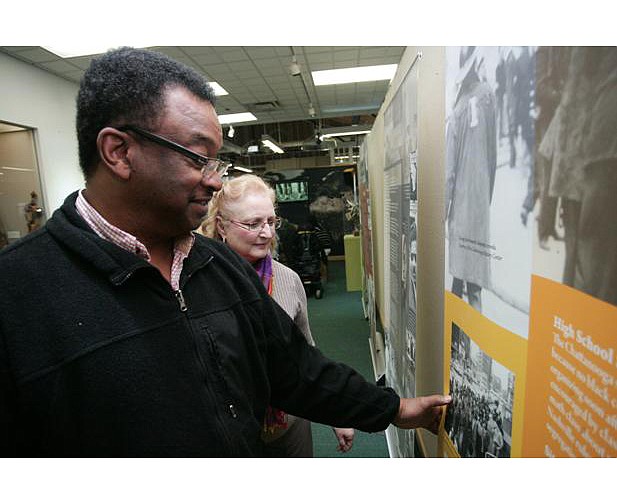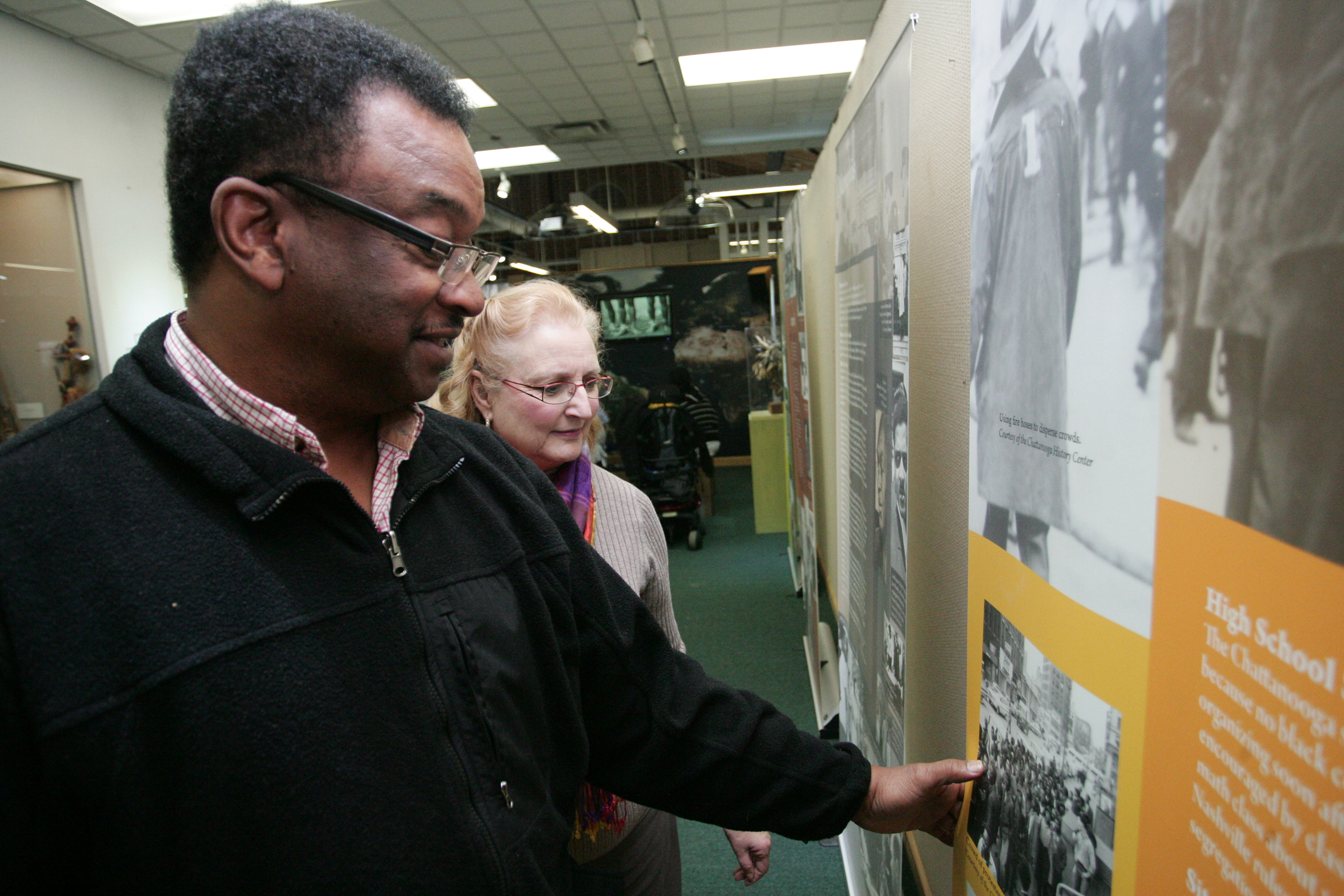Black history makers speak at Chattanooga's Bessie Smith Cultural Center
Friday, January 1, 1904
IF YOU GOWhat: "We Shall Not Be Moved" exhibitWhere: Bessie Smith Cultural Center, 200 E. M.L. King Blvd., through AprilHours: 10 a.m.-5 p.m. Monday-Friday, noon-4 p.m. SaturdayAdmission: Free for museum members; $7 adults, $5 seniors and students, $3 children 6-12, free for children 5More information: Call 423-266-8655 or email info@bessiesmithcc.org.Black history eventsSeveral events will be held in honor of black history month:Today 6 p.m.: Second Missionary Baptist Church will host its annual Black History Banquet celebrating the national black history theme "At the Crossroads of Freedom and Equality: The Emancipation Proclamation and the March on Washington." Tickets are $15 donation. Call 624-9097 for more information. Guest orator and Orchard Knob Elementary School principal LaFrederick Thirkill will present an original performance highlighting the Emancipation Proclamation.Feb. 16, noon: The Salvation Army, 822 McCallie Ave., welcomes The Word Players from Knoxville. This group will present its black history touring show of "Lift Every Voice" by Doug Floyd, a one-act presentation in drama, song and dance on the Harlem Renaissance. Lunch will be provided during the discussion after the performance. The event is free, but donations are appreciated. Seating is limited. Doors will open at 11:30 a.m.Feb. 17 6 to 8 p.m.: The CreativeUnderground and Bessie Smith Cultural Center will present a dramatic musical performance of African-American literary classic, "God's Trombones." The event will be held at the Bessie Smith Cultural Center's Performance Hall. Tickets are $10 for adults and $8 for children 10 and under. Tickets are also $8 for group of eight or more. Go to www.tcuchatt.com or call 266-8658 or 423-402-0452.
Chattanooga teenagers in 1960 disobeyed their parents and risked their lives to challenge segregation and inequality.
Those former teenagers, Howard High School's class of 1960, met at the Bessie Smith Cultural Center to share their stories of how the protests at downtown lunch counters helped shift the course of history.
"I don't want you to miss the feeling of what they were doing," Moses Freeman told the group Wednesday. "They were putting their lives on the line. This was a time that any African-American who did anything could lose their life for it."
Booker T. Scruggs, Virgil Roberson, Robert Parks and Vernon Jones stood in front of "We Shall Not Be Moved," a traveling exhibit at the cultural center developed by the Tennessee State Museum marking Tennessee's civil rights sit-ins. The exhibit will be on display at the museum until April.
Howard's class of 1960 made national news when it began the sit-in demonstrations. College students across the country organized to demand service at lunch counters, but the students in Chattanooga were in high school and they organized with no adult leadership.
"We were all in a trigonometry class when the idea was formed to go downtown and actually sit down at a lunch counter where no African-American students had sat before or no African-Americans had sat before," said Scruggs. "The purpose was to indicate to Chattanooga, the state of Tennessee, the rest of the country that because of the color of our skin, we did not have certain privileges that other folks had."
THE ROOTS OF PROTEST
About 300 students participated from February until near the end of the school year, targeting Woolworth, Kresge, W.T. Grant and S&W Cafeteria.
They developed their own guidelines for protests -- no weapons, no profanity and leave a seat between them at the counter so they would appear as individuals instead of a group.
To avoid crowding the counter, only enough students would go into a business to fill the seats available. Other students would go to another business or stand outside at a distance and wait. Students said that having such a plan prevented them from having violent run-ins with police and store staff.
Nobody told their parents, Freeman said, because they were concerned that the adults would not support them.
He graduated from Howard School in 1956 and was demonstrating in the lunch counter sit-ins in Nashville, where he had been arrested twice. He said he returned to Chattanooga expecting to help organize people here, but the Howard students already had started.
Young people knew that adults would try to protect them and discourage them from having the sit-ins, Freeman said.
"Some teachers in our school system taught us that it was better to be a second-class citizen in America than a first-class citizen in Russia," said Freeman. "They did that to protect us. They were trying to prepare us to live in a segregated society. That rubbed off on us, and therefore some of us began to accept the conditions under which we were living."
He told the crowd at the museum to not underestimate the magnitude of what the students had done and the courage it took to do it.
Chattanooga was a cosmopolitan city, but it was influenced by rural Tennessee, Alabama and Georgia. There were crosses burned to promote fear, and it was just five years after 14-year-old Emmett Till was murdered in Mississippi. The culture was one of Jim Crow laws and segregation.
But seeing Howard's class of 1960 plant themselves at downtown lunch counters ignited courage in youths and adults, Freeman said.
"They lit a fire in the soul of everybody in Chattanooga, who then went to different places and began to demand stuff," Freeman said.
He said his father, Moses Freeman Sr., went to the Electric Power Board and asked for equal pay. Irvin Overton's father, Usher Overton, a water company general repairman, went to the company and demanded equal pay. Irvin Overton is a former interim CEO of Erlanger hospital and former Chattanooga mayoral candidate.
"They gave courage to a whole group of people who had begun to accept and resign themselves to a condition of second-class citizenship," Freeman said.

